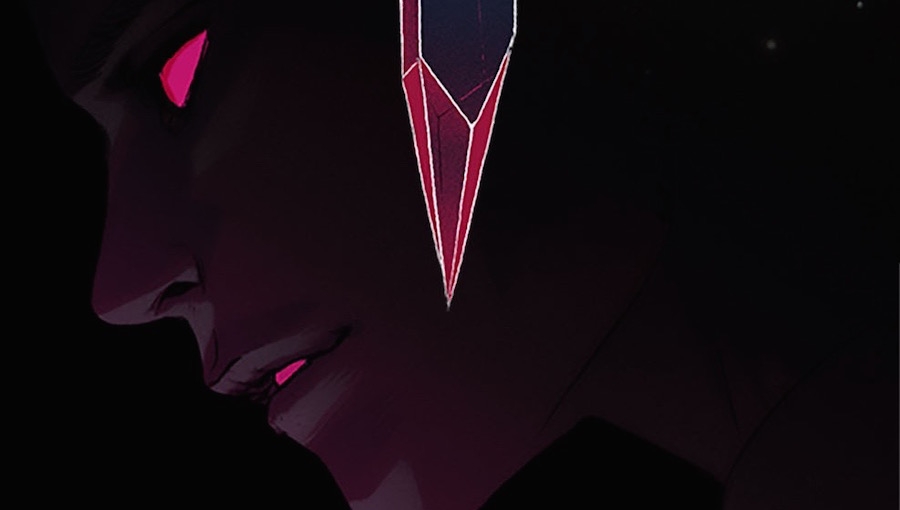The first volume of Becky Cloonan and Andy Belanger’s Southern Cross left me wanting more despite a shaky start, and if anything, this volume leaves me with a similar feeling. Somewhere near the middle, I wasn’t sure where the story was headed and wasn’t even sure if I cared, but by the end, I found myself wishing I could pick up the third volume and keep reading. Such are the perils of reading a series before it is complete, I suppose!
This second volume picks up shortly after the first, though not exactly where the first volume left off. The first volume’s primary protagonist, Alex Braith, is missing, as is the Southern Cross, a transport ship carrying people to Saturn’s moon Titan. Instead, we initially follow Kyril, apparently the only “survivor” of the Southern Cross’ disappearance and a man with a whole host of his own problems.
The universe of Southern Cross is one of those dingy, almost analog futures where humanity has spread throughout our solar system, but no further, and much of that is the domain of megacorps harvesting the lifeless worlds and satellites for resources. I say “humanity” spread throughout the solar system, but that’s only true in the most biological sense; life far from Earth is brutal and cheap. On Titan, enormous drilling platforms are occupied by hardscrabble workers treated like indentured servants by their megacorporate employers, and life can end in an instant thanks to corner-cutting or simply because you looked at some loose cannon the wrong way. This is all to say that when Kyril is rescued and taken aboard one of these rigs, what happened aboard the Southern Cross is the least of his worries.
Fortunately, Kyril quickly finds himself associated with Hazel Conroy, a detective-turned-personal-assistant on the verge of retirement. Hazel is who the story’s really about, and it’s cool to see an older woman kick as much ass as she does. She knows the people around her are dangerous; she knows that there are secrets her superiors will kill to keep; and she knows, above all, how to take care of herself. I have to imagine that Hazel, in her prime, was the kind of cop who could star in an ‘80s action flick. But, you know, in the future. She’s cool is what I’m saying.
Southern Cross took a turn here that I wasn’t expecting at the close of the more noirish first volume, but they do tie together. It’s definitely a dark, brutal vision of the future, and sometimes takes a sharp turn for the strange, a story that exists at the confluence of Alien, Blade Runner, and Dredd, if I were to use movie parlance. I could imagine the difference between this volume and the last to be a bridge too far for some readers. Then again, that sort of variety can turn into a real strength for a series, over time. At times, the story in Southern Cross feels a little stagnant; at others, it’s as if everything’s happening far too quickly. The components, I’ll admit, sometimes feel a little humdrum, like I’ve seen it all before, but I can’t fault the execution. It works, somehow, in a way that means that. When the third volume rolls around, I’ll be asking myself again: “Do I really like this series?” And I’ll be forced to answer: “I’m not sure, yet. I need to keep reading and find out.”

